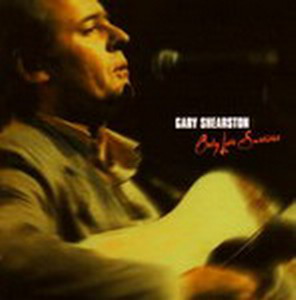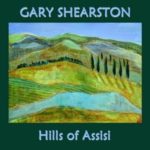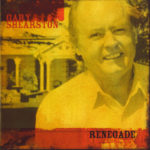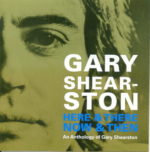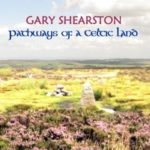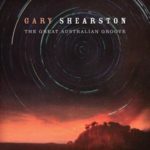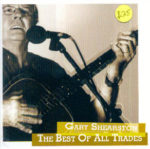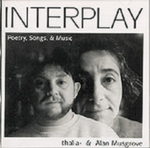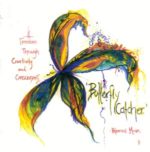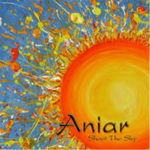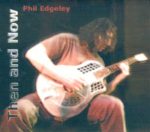Description
Gary Shearston has been a major influence on Australian music for some five decades. In a society where we are conditioned to take music for granted, as yet another dismissible commodity, Gary’s music has stood the biggest test of all – the test of time.
“Gary Shearston is the closest Australia has ever come to producing a local version of Bob Dylan” (Bruce Elder, SMH). Not only was he an influential singer of traditional folk songs during the 1960s heyday of the folk boom & one of the few determined to sing our own songs – about shearers, drovers and other bushmen with a natural bush voice when other Australians were singing with broad Irish accents, sounding like frisky sailors or cotton pickers on the Mississippi, but he was also a hugely gifted songwriter, a radical re-interpreter of the folk tradition (who else thought of using reggae as a backing for Australian songs as early as 1974?) and, if you need any further evidence, had he not been banned from travelling to the United States due to his involvement in the anti-Vietnam movement, he would have ended up being managed by Dylan’s manager, Albert Grossman.
Grossman invited Shearston to go to the States. US Immigration locked him out. So Shearston ended up in London in the early 1970s where, signed to Charisma Records (famous for a catalogue which included Genesis and Van Der Graaf Generator) he scored a hit with an unadorned version of Cole Porter’s ‘I Get a Kick Out of You’.
He eventually moved back to Australia to raise his family and later to commit himself to his beliefs and church. Throughout all these travels, both physical and spiritual, Gary has continued to create new songs and revisit his old ones. He still travels that same road as a singer, songwriter, free thinker and music stylist.
For those who have been living in a parallel universe (or watching CMC); and are inexplicably ignorant of Shearston’s career, a little backtracking may be in order.
Gary Shearston was raised in Tenterfield, NSW. When he was 12 years of age his family moved to Sydney where, after leaving school, he went on to work as a journalist. His childhood experience of life in the bush, however, would develop as one of the dominant influences in his writing.
In the late 1950s, at a time when most Australian Folk Singers were performing their repertoires in unnaturally broad Irish accents; when Rock‘n Roll and Country Singers mimicked a ridiculously ‘Overblown Texan Tone’ and when even many of The Bush Balladeers in Country Music were trying to sound more like ‘The Singing Brakeman’ than Australian Bushmen, Gary pioneered a style that somehow managed to drag the Australian Accent, kicking and screaming, into the light of popular music.
It is no exaggeration to say that without his influence the musical culture which spawned and supported the rise of The Bushwackers, Redgum and John Williamson would probably never have existed. By 1962 Gary was living in Kings Cross and had fallen under the influence of The Sydney Bush Music Club. He was already performing Australian classics, in between his more accessible material, when the ‘folk boom’ of the early 1960’s hit.
Many people in Folk and Country Music (who regularly sing them now) are often unaware of how close to oblivion, songs such as the Rybuck Shearer and Lachlan Tigers actually came. A great debt is owed to the efforts of archivists and historians such as A.L. Lloyd, Duke Triton, Edgar Waters and Eric Watson, who collected and preserved Australia’s Musical Heritage.
Shearston quickly became a regular performer on TV and in Sydney Clubs, and was invited to open The Troubadour Folk Club at the insistence of Brother John Sellers, the American Bluesman who was performing here at the time.
By the time Gary was signed to CBS, in 1963, his work as a songwriter had also become increasingly recognised. ‘Australian Broadside’, featuring ‘Sydney Town’, cemented his position as one of Australian Music’s leading voices. His classic, ‘Sometime Lovin’’ became a world-wide hit when it was recorded by Peter, Paul and Mary on their LP, ‘Album’, in 1965. Like Bob Dylan, John Denver and Gordon Lightfoot, whose careers were also launched when their work was showcased by that iconic folk trio, Shearston’s star was rising rapidly in the international arena.
But there was another side to Gary Shearston, and it was one which would inevitably lead to both his finest moments and his greatest challenges. Gary, who had been raised a Christian; was a committed activist. In addition, he was a man whose belief in the redemptive power of song led him to begin writing material which openly targeted some of the more contentious Inequalities and injustices of the day.
The songs in this collection are true to Gary’s musical and spiritual heart. They talk of friendship, love, understanding and joy. There is also a sense that after all these years the songwriter is entitled to look back. However, in this case, it is clear that his feet are firmly planted in today’s Australia. True to the saying ‘everything old is new again’ in ‘Hey There, Songman’ he skillfully uses the late Don Henderson’s own song words to shine a bright light on one of Australia’s great wordsmiths. Likewise his new musical setting for the Ben Hall bushranging song rings true to remind us of this tragedy of some 150 years ago. When he invites Brother John Sellers to ‘Sing on, Brother John’ we sense that the old gospel bluesman is knowingly swinging along.
Gary Shearston – Only Love Survives Gary Shearston – Vocals, acoustic guitar and piano on “Song for Kimio Eto” Mark Punch – Acoustic and electric guitars, bass, mandolin, harmonica, keyboards, strings, percussion, backing vocals Doug Gallacher – Drums Mark Collins – Drums Mike Vidale – Bass Winsome Evans – Medieval harp, celtic harp, gemshorn, finger cymbals and chimes Andrew Lambkin – Drums Paula Punch – Backing vocals
For many people Gary Shearston is the definitive voice of Australian music. His early record releases have become the benchmark for the interpretation of our traditional repertoire and albums like ‘The Springtime It Brings on the Shearing’, ‘Bolters, Bushrangers and Duffers’ and ‘Folksongs and Ballads of Australia’ still stand tall these many decades later. He was also singing new songs written by local songwriters and Don Henderson in particular however it was his own songwriting that kept shining through in his performances. His ‘Australian Broadside’ album, issued by CBS in 1965, remains an important landmark document in Australian contemporary music.
Gary was also fairly unique in that he sang with an Australian voice when most singers were bunging on an Irish, British or American accent to carry their repertoire. Maybe it would be more appropriate to say he sang in his own voice reinforced by the fact that he was born in the bush (Inverell, northern New South Wales, 1939) and was always interested in what made Australians tick. As the ‘folk boom’ continued to explode Gary appeared on several television shows including ‘Teen Time’ and ‘Bandstand’ and even had his own national television program ‘Just Folk’ on the Seven network. In 1974 he had an international hit with his version of the Cole Porter classic ‘I Get A Kick Out of You’ but, more importantly, he recorded albums for Charisma and Virgin featuring his own songs.
Gary returned to Australia in 1989 and recorded ‘Aussie Blue’ which reintroduced him as a strong Australian voice. The songs in this collection are true to Gary’s musical and spiritual heart. They talk of friendship, love, understanding and joy. There is also a sense that after all these years the songwriter is entitled to look back however, in this case, it is clear that his feet are firmly planted in today’s Australia. True to the saying ‘everything old is new again’ in ‘Hendo’ he skillfully uses the late Don Henderson’s own song words to shine a bright light on one of Australia’s great word-smiths. Likewise his new musical setting for the Ben Hall bushranging song ring true to remind us of this tragedy of some 150 years ago. When he invites Brother John Sellers to ‘Sing on, Brother John’ we sense that the old gospel bluesman is knowingly swinging along.
‘I Get A Kick Out Of You’ still receives massive air play.
It is hard to believe this is Gary Shearston’s 30th recording to be released in Australia.
Dedicated to the music and memory of Hugh Murphy.
Track Listing:
1. Riverina Drover
2. Riverina 1984
3. Pretty Bonnie
4. Hey there, Songman
5. Foreign Strand
6. Streets Of Forbes
7. Sing on, Brother John
8. Forty Days
9. The Man I Might Have Been
10. Song for Kimio Eto
11. Love, Don’t Ever Make a Fool of Me Again
12. Bonnie’s Lullaby
“The word ‘legend’ is used freely in the music world, but few could be more entitled to its use than Gary Shearston.” (Ian Dearden, Trad & Now)
